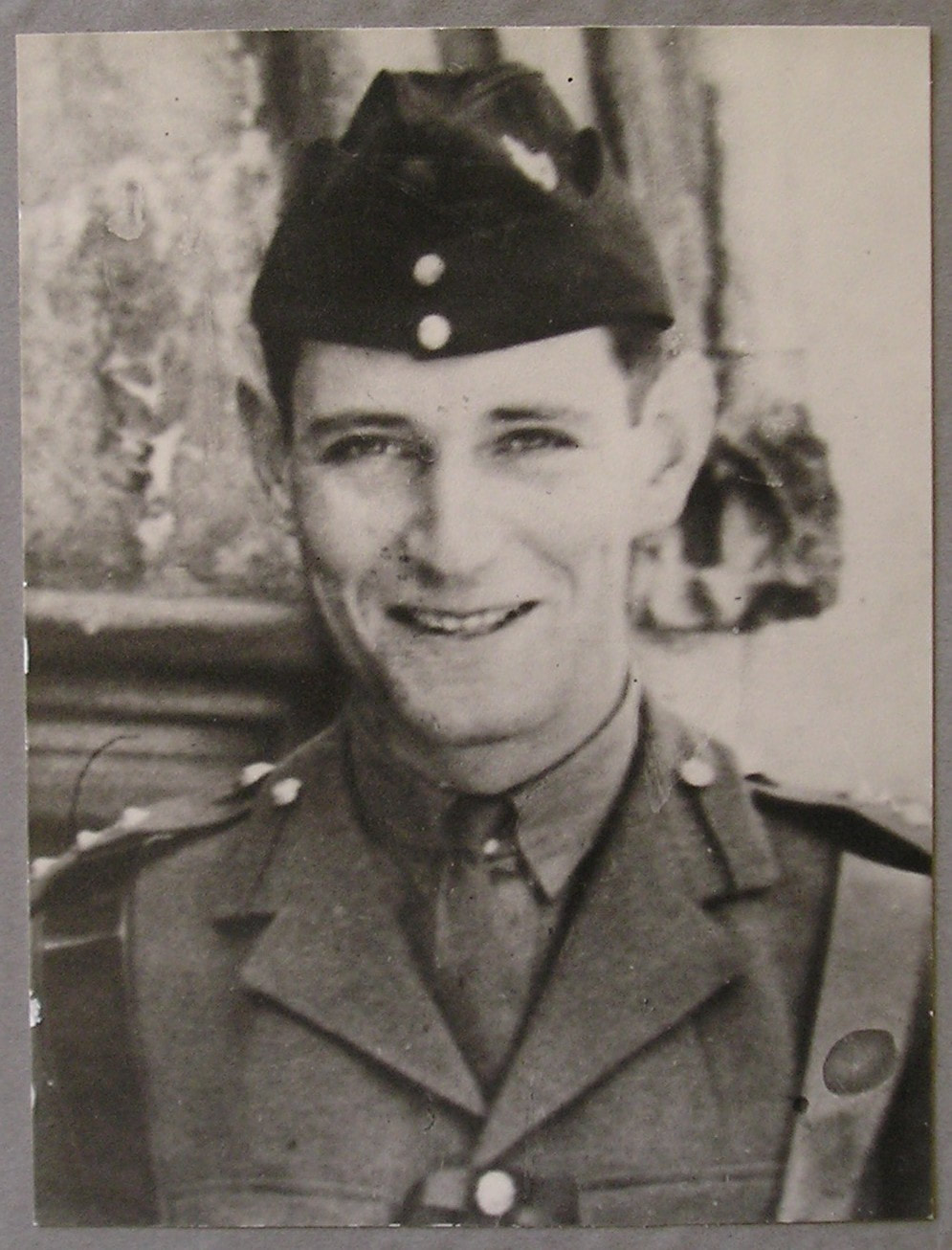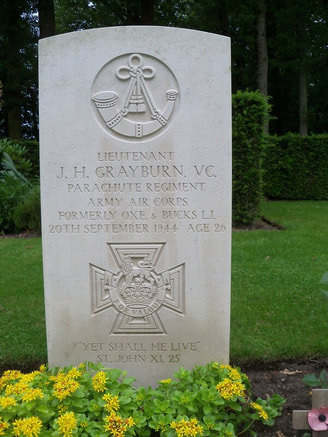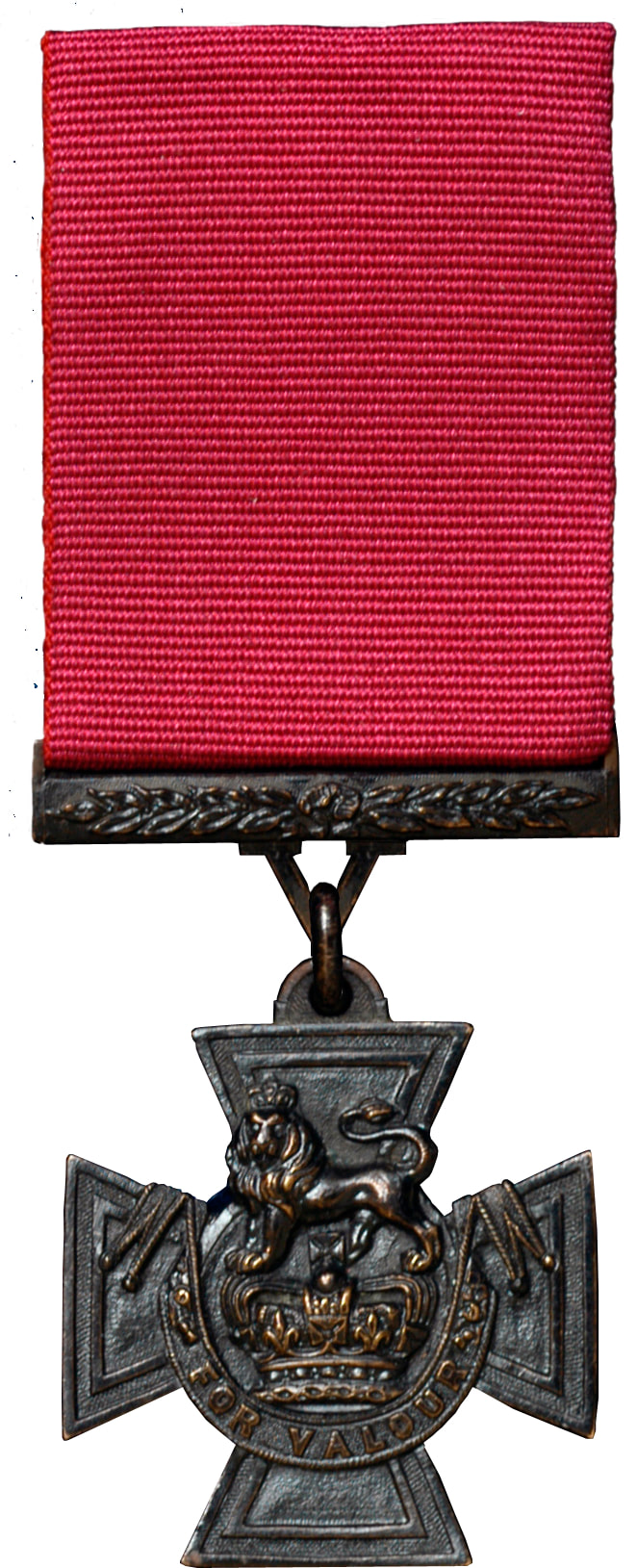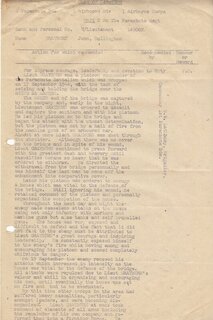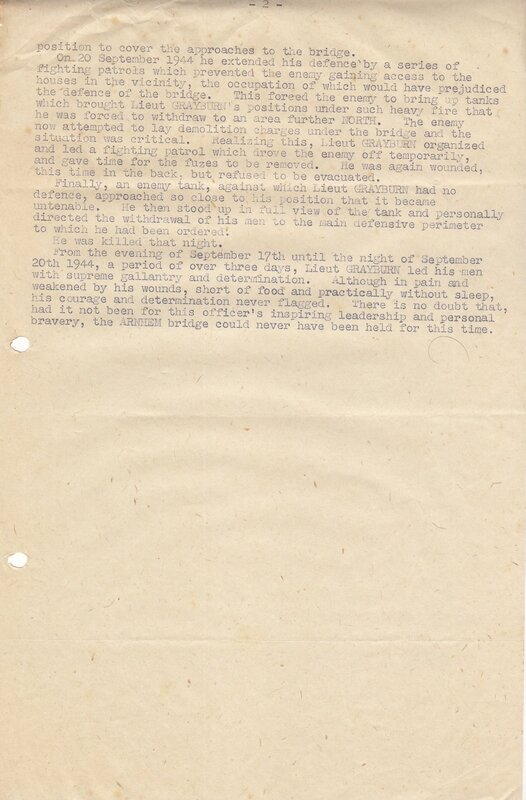- HOME
- SOLDIER RESEARCH
- WOLVERTONS AMATEUR MILITARY TRADITION
- BUCKINGHAMSHIRE RIFLE VOLUNTEERS 1859-1908
- BUCKINGHAMSHIRE BATTALION 1908-1947
- The Bucks Battalion A Brief History
- REGIMENTAL MARCH
-
1ST BUCKS 1914-1919
>
- 1914-15 1/1ST BUCKS MOBILISATION
- 1915 1/1ST BUCKS PLOEGSTEERT
- 1915-16 1/1st BUCKS HEBUTERNE
- 1916 1/1ST BUCKS SOMME JULY 1916
- 1916 1/1st BUCKS POZIERES WAR DIARY 17-25 JULY
- 1916 1/1ST BUCKS SOMME AUGUST 1916
- 1916 1/1ST BUCKS LE SARS TO CAPPY
- 1917 1/1ST BUCKS THE GERMAN RETIREMENT
- 1917 1/1st BUCKS TOMBOIS FARM
- 1917 1/1ST BUCKS THE HINDENBURG LINE
- 1917 1/1ST BUCKS 3RD BATTLE OF YPRES
- 1917 1/1st BUCKS 3RD YPRES 16th AUGUST
- 1917 1/1st BUCKS 3RD YPRES WAR DIARY 15-17 JULY
- 1917 1/1ST BUCKS 3RD BATTLE OF YPRES - VIMY
- 1917-18 1/1ST BUCKS ITALY
-
2ND BUCKS 1914-1918
>
- 1914-1916 2ND BUCKS FORMATION & TRAINING
- 1916 2/1st BUCKS ARRIVAL IN FRANCE
- 1916 2/1st BUCKS FROMELLES
- 1916 2/1st BUCKS REORGANISATION
- 1916-1917 2/1st BUCKS THE SOMME
- 1917 2/1st BUCKS THE GERMAN RETIREMENT
- 1917 2/1st BUCKS ST QUENTIN APRIL TO AUGUST 1917
- 1917 2/1st BUCKS 3RD YPRES
- 1917 2/1st BUCKS ARRAS & CAMBRAI
- 1918 2/1st BUCKS ST QUENTIN TO DISBANDMENT
-
1ST BUCKS 1939-1945
>
- 1939-1940 1BUCKS MOBILISATION & NEWBURY
- 1940 1BUCKS FRANCE & BELGIUM
- 1940 1BUCKS HAZEBROUCK
- HAZEBROUCK BATTLEFIELD VISIT
- 1940-1942 1BUCKS
- 1943-1944 1BUCKS PREPARING FOR D DAY
- COMPOSITION & ROLE OF BEACH GROUP
- BROAD OUTLINE OF OPERATION OVERLORD
- 1944 1ST BUCKS NORMANDY D DAY
- 1944 1BUCKS 1944 NORMANDY TO BRUSSELS (LOC)
- Sword Beach Gallery
- 1945 1BUCKS 1945 FEBRUARY-JUNE T FORCE 1st (CDN) ARMY
- 1945 1BUCKS 1945 FEBRUARY-JUNE T FORCE 2ND BRITISH ARMY
- 1945 1BUCKS JUNE 1945 TO AUGUST 1946
- BUCKS BATTALION BADGES
- BUCKS BATTALION SHOULDER TITLES 1908-1946
- 1939-1945 BUCKS BATTALION DRESS >
- ROYAL BUCKS KINGS OWN MILITIA
- BUCKINGHAMSHIRE'S LINE REGIMENTS
- ROYAL GREEN JACKETS
- OXFORDSHIRE & BUCKINGHAMSHIRE LIGHT INFANTRY 1741-1965
- OXF & BUCKS LI INSIGNIA >
- REGIMENTAL CUSTOMS & TRADITIONS >
- REGIMENTAL COLLECT AND PRAYER
- OXF & BUCKS LI REGIMENTAL MARCHES
- REGIMENTAL DRILL >
-
REGIMENTAL DRESS
>
- REGIMENTAL UNIFORM 1741-1896
- REGIMENTAL UNIFORM 1741-1914
- 1894 REGIMENTAL DRESS
- 1897 OFFICERS DRESS REGULATIONS
- 1900 DRESS REGULATIONS
- 1931 REGIMENTAL DRESS
- 1939-1945 REGIMENTAL DRESS
- 1950 OFFICERS DRESS REGULATIONS
- 1960 OFFICERS DRESS REGULATIONS (TA)
- 1960 REGIMENTAL MESS DRESS
- 1963 REGIMENTAL DRESS
- 1958-1969 REGIMENTAL DRESS
- HEADDRESS >
- REGIMENTAL CREST
- BATTLE HONOURS
- REGIMENTAL COLOURS >
- BRIEF HISTORY
- REGIMENTAL CHAPEL, OXFORD >
-
THE GREAT WAR 1914-1918
>
- REGIMENTAL BATTLE HONOURS 1914-1919
- OXF & BUCKS LI 1914-1919 SUMMARY INTRODUCTION
- 1 OXF & BUCKS LI 1914-1919 SUMMARY
- 2 OXF & BUCKS LI 1914-1919 SUMMARY
- 1/4 OXF & BUCKS LI 1914-1918 SUMMARY
- 2/4 OXF & BUCKS LI 1914-1918 SUMMARY
- 1/1 BUCKS BATTALION 1914-1918 SUMMARY
- 2/1 BUCKS BATTALION 1914-1918 SUMMARY
- 5 (SERVICE) OXF & BUCKS LI 1914-1918 SUMMARY
- 6 (SERVICE) OXF & BUCKS LI 1914-1918 SUMMARY
- 7 (SERVICE) OXF & BUCKS LI 1914-1918 SUMMARY
- 8 (SERVICE) OXF & BUCKS LI 1914-1918 SUMMARY
- 1st GREEN JACKETS (43rd & 52nd) 1958-1965
- 1ST GREEN JACKETS (43RD & 52ND) 1958-1965
- 1959 1ST GREEN JACKETS (43RD & 52ND)
- 1959 REGIMENTAL MARCH IN OXFORD
- 1959 DEMONSTRATION BATTALION
- 1960 1ST GREEN JACKETS (43RD & 52ND)
- 1961 1ST GREEN JACKETS (43RD & 52ND)
- 1961 THE LONGEST DAY
- 1962 1ST GREEN JACKETS (43RD & 52ND)
- 1963 1ST GREEN JACKETS (43RD & 52ND)
- 1963 CONVERSION TO “RIFLE” REGIMENT
- 1964 1ST GREEN JACKETS (43RD & 52ND)
- 1965 1ST GREEN JACKETS (43RD & 52ND)
- 1965 FORMATION OF ROYAL GREEN JACKETS
- REGULAR BATTALIONS 1741-1958
-
1st BATTALION (43rd LIGHT INFANTRY)
>
-
43rd LIGHT INFANTRY 1741-1914
>
- 43rd REGIMENT 1741-1802
- 43rd LIGHT INFANTRY 1803-1805
- 43rd LIGHT INFANTRY 1806-1809
- 43rd LIGHT INFANTRY 1809-1810
- 43rd LIGHT INFANTRY 1810-1812
- 43rd LIGHT INFANTRY 1812-1814
- 43rd LIGHT INFANTRY 1814-1818
- 43rd LIGHT INFANTRY 1818-1854
- 43rd LIGHT INFANTRY 1854-1863
- 43rd LIGHT INFANTRY 1863-1865
- 43rd LIGHT INFANTRY 1865-1897
- 43rd LIGHT INFANTRY 1899-1902
- 43rd LIGHT INFANTRY 1902-1914
-
1 OXF & BUCKS LI 1914-1919
>
-
1 OXF & BUCKS LI 1920-1939
>
- 1 OXF & BUCKS LI - 1919
- 1 OXF & BUCKS LI - 1920
- 1 OXF & BUCKS LI - 1921
- 1 OXF & BUCKS LI - 1922
- 1 OXF & BUCKS LI - 1923
- 1 OXF & BUCKS LI - 1924
- 1 OXF & BUCKS LI - 1925
- 1 OXF & BUCKS LI - 1926
- 1 OXF & BUCKS LI - 1927
- 1 OXF & BUCKS LI - 1928
- 1 OXF & BUCKS LI - 1929
- 1 OXF & BUCKS LI - 1930
- 1 OXF & BUCKS LI - 1931
- 1 OXF & BUCKS LI - 1932
- 1 OXF & BUCKS LI - 1933
- 1 OXF & BUCKS LI - 1934
- 1 OXF & BUCKS LI - 1935
- 1 OXF & BUCKS LI - 1936
- 1 OXF & BUCKS LI - 1937
- 1 OXF & BUCKS LI - 1938
- 1 OXF & BUCKS LI - 1939
- 1 OXF & BUCKS LI 1939-1945 >
-
1 OXF & BUCKS 1946-1958
>
- 1 OXF & BUCKS LI - 1946
- 1 OXF & BUCKS LI - 1947
- 1 OXF & BUCKS LI - 1948
- 1948 FREEDOM PARADES
- 1 OXF & BUCKS LI - 1949
- 1 OXF & BUCKS LI - 1950
- 1 OXF & BUCKS LI - 1951
- 1 OXF & BUCKS LI - 1952
- 1 OXF & BUCKS LI - 1953
- 1 OXF & BUCKS LI - 1954
- 1 OXF & BUCKS LI - 1955
- 1 OXF & BUCKS LI - 1956
- 1 OXF & BUCKS LI - 1957
- 1 OXF & BUCKS LI - 1958
-
43rd LIGHT INFANTRY 1741-1914
>
-
2nd BATTALION (52nd LIGHT INFANTRY)
>
- 52nd LIGHT INFANTRY 1755-1881 >
- 2 OXF LI 1881-1907
- 2 OXF & BUCKS LI 1908-1914
-
2 OXF & BUCKS LI 1914-1919
>
-
2 OXF & BUCKS LI - 1919-1939
>
- 2 OXF & BUCKS LI - 1919
- 2 OXF & BUCKS LI - 1920
- 2 OXF & BUCKS LI - 1921
- 2 OXF & BUCKS LI - 1922
- 2 OXF & BUCKS LI - 1923
- 2 OXF & BUCKS LI - 1924
- 2 OXF & BUCKS LI - 1925
- 2 OXF & BUCKS LI - 1926
- 2 OXF & BUCKS LI - 1927
- 2 OXF & BUCKS LI - 1928
- 2 OXF & BUCKS LI - 1929
- 2 OXF & BUCKS LI - 1930
- 2 OXF & BUCKS LI - 1931
- 2 OXF & BUCKS LI - 1932
- 2 OXF & BUCKS LI - 1933
- 2 OXF & BUCKS LI - 1934
- 2 OXF & BUCKS LI - 1935
- 2 OXF & BUCKS LI - 1936
- 2 OXF & BUCKS LI - 1937
- 2 OXF & BUCKS LI - 1938
- 2 OXF & BUCKS LI - 1939
-
2 OXF & BUCKS LI 1939-1945
>
- 1939-1941
- 1941-1943 AIRBORNE INFANTRY
- 1944 PREPARATION FOR D DAY
- 1944 PEGASUS BRIDGE-COUP DE MAIN
- Pegasus Bridge Gallery
- Horsa Bridge Gallery
- COUP DE MAIN NOMINAL ROLL
- MAJOR HOWARDS ORDERS
- 1944 JUNE 6
- D DAY ORDERS
- 1944 JUNE 7-13 ESCOVILLE & HEROUVILETTE
- Escoville & Herouvillette Gallery
- 1944 JUNE 13-AUGUST 16 HOLDING THE BRIDGEHEAD
- 1944 AUGUST 17-31 "PADDLE" TO THE SEINE
- "Paddle To The Seine" Gallery
- 1944 SEPTEMBER ARNHEM
- OPERATION PEGASUS 1
- 1944/45 ARDENNES
- 1945 RHINE CROSSING
- OPERATION VARSITY - ORDERS
- OPERATION VARSITY BATTLEFIELD VISIT
- 1945 MARCH-JUNE
- 2 OXF & BUCKS LI DRESS 1940-1945 >
- 2 OXF & BUCKS LI 1946-1947 >
-
1st BATTALION (43rd LIGHT INFANTRY)
>
- MILITIA BATTALIONS
- TERRITORIAL BATTALIONS
- WAR RAISED/SERVICE BATTALIONS 1914-18 & 1939-45
-
5th, 6th, 7th & 8th (SERVICE) 1914-1918
>
-
6th & 7th Bns OXF & BUCKS LI 1939-1945
>
- 6th Bn OXF & BUCKS LI 1940-1945 >
-
7th Bn OXF & BUCKS LI 1940-1945
>
- 7th Bn OXF & BUCKS LI JUNE 1940-JULY 1942
- 7th Bn OXF & BUCKS LI JULY 1942 – JUNE 1943
- 7th Bn OXF & BUCKS LI JULY 1943–OCTOBER 1943
- 7th Bn OXF & BUCKS LI OCTOBER 1943–DECEMBER 1943
- 7th Bn OXF & BUCKS LI DECEMBER 1943-JUNE 1944
- 7th Bn OXF & BUCKS LI JANUARY 1944-JUNE 1944
- 7th Bn OXF & BUCKS LI JUNE 1944–JANUARY 1945
-
5th, 6th, 7th & 8th (SERVICE) 1914-1918
>
- "IN MY OWN WORDS"
- CREDITS
LIEUTENANT John"Jack"Hollington GRAYBURN V.C.
Platoon Commander Number 2 Platoon,
A Company,
2nd Parachute Battalion
Commissioned into The Oxfordshire and Buckinghamshire Light Infantry on 14th September 1940 he served with the 1st Battalion (the 43rd). For the greater part of his service with the Battalion he was the Officer Commanding the Carrier Platoon and promoted T/Captain.
In June 1943 he transferred to the Parachute Regiment (with a reduction to his substantive rank of Lieutenant), serving with the 2nd Parachute Battalion in North Africa and Italy.
At the time of the Arnhem Operation he was platoon Commander of 2 Platoon, “A” Company (Major Tatham-Warter).
In June 1943 he transferred to the Parachute Regiment (with a reduction to his substantive rank of Lieutenant), serving with the 2nd Parachute Battalion in North Africa and Italy.
At the time of the Arnhem Operation he was platoon Commander of 2 Platoon, “A” Company (Major Tatham-Warter).
For his actions at Arnhem Lt Grayburn was awarded the VICTORIA CROSS.
The following details are given in the London Gazette of 23rd January, 1945:-
“Lt. Grayburn was a platoon commander of the Parachute Battalion which was dropped on September 17th, 1944, with orders to seize and hold the bridge over the Rhine at Arnhem.
He, with his platoon, was to capture the southern end. Lt. Grayburn was wounded in the shoulder almost immediately, but he directed and pressed the assault until casualties became so heavy that he was ordered to withdraw.
Later, he successfully organized the occupation of a house vital to the defence of the bridge. Although heavily attacked throughout the next day and night, thanks to Lt. Grayburn's courage, leadership, and skill in disposing his men, the house was held until it was set on fire on September 19th, and had to be evacuated.
Lt. Grayburn then formed a fighting force of elements of all arms, including the remainder of his company. Although wounded again, this time in the back, he refused to be evacuated. When tank attacks, against which he had no defence, finally forced his retreat on September 20th, he stood up in full view of the enemy, and directed the withdrawal of his men to the main defensive perimeter.
He was killed that night.
For nearly four days, despite pain and weakness from his wounds, shortage of food and lack of sleep, Lt. Grayburn displayed supreme and unflagging gallantry and determination. Without his inspiring leadership the Arnhem bridge could not have been held for so long.
“Lt. Grayburn was a platoon commander of the Parachute Battalion which was dropped on September 17th, 1944, with orders to seize and hold the bridge over the Rhine at Arnhem.
He, with his platoon, was to capture the southern end. Lt. Grayburn was wounded in the shoulder almost immediately, but he directed and pressed the assault until casualties became so heavy that he was ordered to withdraw.
Later, he successfully organized the occupation of a house vital to the defence of the bridge. Although heavily attacked throughout the next day and night, thanks to Lt. Grayburn's courage, leadership, and skill in disposing his men, the house was held until it was set on fire on September 19th, and had to be evacuated.
Lt. Grayburn then formed a fighting force of elements of all arms, including the remainder of his company. Although wounded again, this time in the back, he refused to be evacuated. When tank attacks, against which he had no defence, finally forced his retreat on September 20th, he stood up in full view of the enemy, and directed the withdrawal of his men to the main defensive perimeter.
He was killed that night.
For nearly four days, despite pain and weakness from his wounds, shortage of food and lack of sleep, Lt. Grayburn displayed supreme and unflagging gallantry and determination. Without his inspiring leadership the Arnhem bridge could not have been held for so long.
Extract from the Regimental Chronicle of the Oxfordshire & Buckinghamshire Light Infantry Officers Roll of Honour 1939-1945.
Grayburn, Lieutenant John Hollington, VC. son of Mr. and Mrs. L. M. Grayburn, of Chalfont St. Giles, Buckinghamshire, was educated at Sherborne School and joined the Hong Kong and Shanghai Bank two or three years before the war. He joined the Regiment on 14th September, 1940, and served in the 43rd up to 1943, when he volunteered for the Parachute Regiment, seeing service in North Africa and Italy before winning his posthumous Victoria Cross at Arnhem with the 1st Airborne Division for supreme courage, leadership and devotion to duty.
Lieutenant Grayburn was a platoon commander of the Parachute Battalion which was dropped on 17th September with the task of seizing and holding the bridge over the Rhine at Arnhem.
The north end of the bridge was captured and, early in the night, Lieutenant Grayburn was ordered to assault and capture the southern end with his platoon. He led his platoon on to the bridge and began the attack with the utmost determination, but the platoon was met by a hail of fire from two 20-mm. quick-firing guns and from the machine guns of an armoured car. Almost at once Lieutenant Grayburn was shot through the shoulder. Although there was no cover on the bridge, and in spite of his wound, Lieutenant Grayburn continued to press forward with the greatest dash and bravery until casualties became so heavy that he was ordered to withdraw. He directed the withdrawal from the bridge personally and was himself the last man to come off the embankment into comparative cover.
Later his platoon was ordered to occupy a house which was vital to the defence of the bridge, and he personally organized the occupation of the house. Throughout the next day and night the enemy made ceaseless attacks on the house using not only infantry with mortars and machine guns but also tanks and self-propelled guns. The house was very exposed and difficult to defend and the fact that it did not fall to the enemy must be attributed to Lieutenant Grayburn's great courage and inspiring leadership. He constantly exposed himself to the enemy's fire while moving among, and encouraging, his platoon, and seemed completely oblivious to danger.
On 19th September the enemy renewed and intensified his attacks on the house. All attacks were repulsed, due to Lieutenant Grayburn's valour and skill in organizing and encouraging his men, until eventually the house was set on fire and had to be evacuated. He then took command of elements of all arms, including the remainder of his own company, and re-formed them into a fighting force. He spent the night organizing a defensive position to cover the approaches to the bridge.
The next day he extended his defence by a series of fighting patrols which prevented the enemy gaining access to the houses in the vicinity. This forced the enemy to bring up tanks which brought Lieutenant Grayburn's position under such heavy fire that he was forced to withdraw to an area farther north. The enemy now attempted to lay demolition charges under the bridge and the situation was critical. Realizing this, Lieutenant Grayburn organized and led a fighting patrol which drove the enemy off temporarily, and gave time for the fuses to be removed. He was again wounded, this time in the back, but refused to be evacuated.
Finally, an enemy tank, against which Lieutenant Grayburn had no defence, approached so close to his position that it became untenable. He then stood up in full view of the tank and personally directed the withdrawal of his men to the main defensive perimeter to which he had been ordered. He was killed that night.
From the evening of 17th September until the night of 20th September Lieutenant Grayburn led his men with supreme gallantry and determination. Although in pain and weakened by his wounds, short of food and without sleep, his courage never flagged. There is no doubt that, had it not been for this officer's inspiring leadership and personal bravery, the Arnhem bridge could never have been held for these three days.
Lieutenant Grayburn was married in 1942, and there is one son, born in March, 1943.
From a brother officer: "To write of Jack Grayburn as a soldier one must, I think, start with the Regiment because he was first and foremost a true Regimental officer. He joined the 43rd at Hatherleigh in the autumn of 1940. One has only to take the names of the officers who joined at that time and who have since fallen in action, William Blewitt, Rupert Livingstone, John Cooper and Dick Seers, to realize the strength of the Regimental team of officers which was then building up and which was maintained through Jack's three years with the 43rd.
"The greater part of Jack's service with the Regiment was as commander of the carrier platoon and he brought to it the full force of his infectious enthusiasm. He combined a thorough and detailed care of his men with a reckless dash in all training and exercises.
His men loved him for all this and so did his brother officers, and it was not long before he became known as 'Mad Jack.'
"In the autumn of 1942 he did a course at the carrier wing of the School of Infantry at Barnard's Castle. I think this was a considerable landmark, for Jack found there enthusiasm to match his own, and returned with his ability as a commander increased and matured.
"I remember fearing at this time that the humdrum round of training would not satisfy Jack, but I need not have worried, for he set to work undaunted and some excellent and original exercises resulted.... At this time the Regiment was in a brigade commanded by a Guardsman, an excellent and enthusiastic man who had certain violent prejudices. Arthur Clerke Brown, who was brigade major, summed up the latter as a violent antipathy to black buttons, battle drill and General Browning. Despite the fact that Jack Grayburn had distinct leanings towards all three, he completely won the heart of the brigadier and was consulted on practically all matters of carrier organization and tactics in the brigade.
"An account of Jack's time in the 43rd cannot end without mention of his part in sport and particularly rugby football. I can see, and hear, him now letting himself go with everything he had got, as in all he undertook."
Your browser does not support viewing this document. Click here to download the document.
Proudly powered by Weebly
